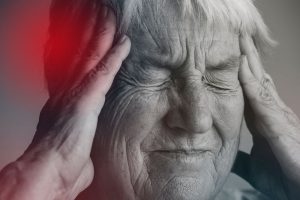Binge Eating Disorder
Published on February 20th, 2017
Updated on February 28th, 2024

Binge eating disorder is a mental health disorder that causes a person to lose control of their eating habits. A person with binge eating disorder struggles to control how much or how often they eat on a daily or weekly basis. The tendency to overeat may tend to worsen when the affected person is stressed or overwhelmed.
People with binge eating disorder will go on overeating binges. Overeating can occur even when the affected person is not hungry or has eaten until uncomfortably full. A person with binge eating disorder may try to diet after a binge to make up for the food consumed.
Binge eating disorder is defined as the inability to control how much or how frequently a person eats on a daily basis. A person with binge eating disorder will eat in excess or compulsively. They will find themselves preoccupied with thoughts and cravings to eat. These thoughts and cravings are more intrusive and severe than simple hunger or indulgence.
Sponsored by

Choose a therapist to work with and start healing with 20% off from BetterHelp.
Click HereIt is common to find binge eating disorder co-occurring with other mental health disorders. Such mood disorders include depression and anxiety. Those with binge eating disorder also have low self-esteem. They may be socially isolated and feel ashamed or embarrassed of their eating habits.
Symptoms of Binge Eating Disorder
There are several symptoms of binge eating disorder, but being overweight or obese is not one of them. People of all shapes and sizes can suffer from binge eating disorder. The disorder itself does not always result in weight gain or obesity.
Symptoms of binge eating disorder include:
- Eating until uncomfortably full
- Eating quickly and without control
- Overeating when not hungry
- Shame about binge eating
- Flash-dieting or fad dieting with low results
- Preference for eating alone
- Efforts to hide or conceal binge eating behavior
- Feeling out of control of binge eating behavior
- Depressed mood and anxiety after a binge
- Shame, guilt, and disgust about eating behavior
Binge eating disorder can cause an affected person to have difficulty focusing. This impacts their ability to function in different situations, like work, school and social outings. Difficulty with focusing results from factors that include:
- Cravings
- Depressed mood
- Anxiety
- Feeling self-conscious about one’s presentation or performance
- Feeling ashamed of binge eating behaviors

Causes And Risk Factors Of Binge Eating Disorder
People with binge eating disorder will often feel like they cannot control their eating. They will eat a lot of food throughout the day regardless of the calories consumed. The habit of binge eating can be caused by several factors that influence the affected person’s life.
Such factors that can cause binge eating disorder include:
Stress And Mental Health Issues
Binge eating is often triggered by stress. Whether it is stress from trauma, loss of work, home, or relationships, a person who suffers from binge eating disorder may turn to food for comfort. Those who have low self-esteem or a poor body image may also be at risk of developing binge eating disorder.
People with binge eating disorder have low self-esteem and tend to not like their bodies. They may also be depressed and eat to cope with emotional stress.
Trauma
Those who have suffered from physical, emotional, or sexual abuse are also at risk for binge eating. A person who has been through abuse or trauma may turn to binge eating for several reasons, including:
- Seeking a sense of control
- Escaping from reality
- Easing emotional pain and suffering
- Punishing themselves for being “undeserving” of love or respect
- Making themselves look “undesirable” to others (often seen with sexual and domestic abuse)
Family, Genetics, and Upbringing
Binge eating disorder seems to run in families. People who have family members who binge eat are at increased risk of binge eating themselves. This trend may be due to different reasons, including:
Upbringing.
It is important to consider the behavior modeled for children during childhood. Behaviors that can lead to binge eating can be taught and encouraged by family members. If a person learns poor eating habits as a child, they can develop poor habits as an adult.
Example: If you were taught bad eating habits like using food as comfort, you will learn that emotional eating is a method of coping with stress. You may also learn to use food as a reward or method of celebrating if you were rewarded with food or special meals as a child.
Genetics.
A person with binge eating disorder may be genetically predisposed to suffering from the disorder. They may have family members who binge eat as well, causing them to be overweight or obese. They may also suffer from other eating disorders or have a history of addiction.
Note: Some therapists draw an analogy eating disorders to addiction—i.e. the “eating disorder” functions almost like a drug of choice. Many people diagnosed with a substance use disorder state that they use their drug to distract or escape painful feelings. The eating disorder can function in the same way. It can provide an escape, esteem, and validation. In this way, there are obvious parallels between the two types of diagnoses. The analogy stops there, though. Addicts are addicted to drugs, whereas those with eating disorders are addicted to behaviors- the acts of purging, restricting and bingeing. As such, treatment and recovery take on different tones.
Society, Media, and Advertising
Today’s society puts an extraordinary amount of pressure on people to look a certain way. The subliminal pressure to fit the media’s unrealistic body image can cause a person to develop low self-esteem.
The body image deemed beautiful by the media is often unattainable, but people are still told to feel ashamed for not looking like those seen on TV. People will often binge eat to seek comfort for not being able to look the way they are told they are supposed to look.
Along with pressures from society and the media to look a certain way, people are constantly being exposed to advertisements that promote unhealthy food. Advertisements that promote bad food choices encourage people to overeat, socialize with food, and eat foods that are high in fat and sugar.
Example: Fast food commercials often promote foods based on their huge portion sizes and rewards you get for ordering their food. The quality of the food is poor, but the attention is diverted from the nutritional content to the bargain you get for ordering a meal from their menu.
Binge eating is more than just overeating or making poor food choices. Those with binge eating disorder suffer from deeper issues. Whether it is mental illness, low self-esteem, poor body image, trauma, abuse, or genetics, people who binge eat suffer from emotional and physical pain.
Note: There are ways to stop binge eating and feel better. Through lifestyle changes and therapy, there is hope for a brighter, healthier future. Seeking proper treatment from a medical or mental health professional is the first step to addressing concerns about binge eating.

Warning Signs Of Binge Eating Disorder
Of course, we all overdo it sometimes. There is a line though, between occasionally indulging and binge eating. The first and most significant warning sign of binge eating disorder is when a person struggles to feel in control of their eating.
Those with binge eating disorder will feel out of control of their eating. They will eat when not hungry and may even eat until they are in pain. Binge eating disorder goes beyond the habit of snacking. Those with binge eating disorder will eat quickly and in excess. These binges will occur on average at least once a week and will last for a period of a few hours.
Other warning signs of binge eating disorder include:
- Sudden weight gain
- Changes in eating patterns
- Hiding food or eating in secret
- Attempts to diet
- Sensitivity around eating habits
- Minimizing the emotional impact of eating habits
- Mood swings and issues with body image and self-esteem
Sponsored by

Find an affordable therapist online with 20% off from BetterHelp.
Click Here






Leave A Reply